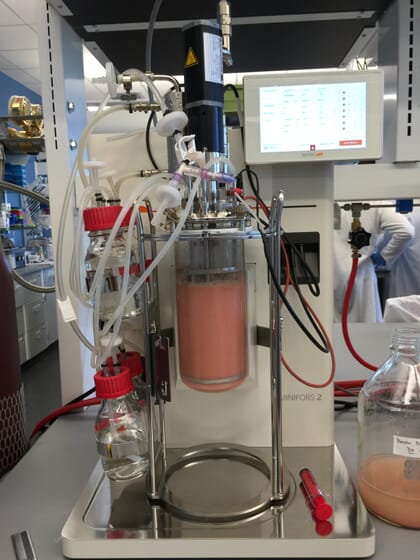KnipBio and ICM have announced a joint development agreement (JDA) and strategic collaboration to create a commercial-scale fermentation process for KnipBio Meal (KBM).

© KnipBio
The companies will explore new fermentation processes using ethanol and ethanol production process co-products. ICM will also provide process engineering and construction plans for commercial exploitation of KnipBio’s biotechnology research. In conjunction with the JDA, ICM is making a significant resource and financial investment in KnipBio and will have representation on the company’s board of directors.
Larry Feinberg, CEO of KnipBio, stated: “ICM is a great strategic fit for us. They have demonstrated their unrivaled knowledge and ability as the world’s leading fermentation process engineering firm. Their expertise will be invaluable as we move towards commercial production. We are thrilled to call them our collaborator. Bringing together ICM’s best-in-class fermentation know-how and KnipBio’s innovative biotechnology will allow us to dramatically accelerate our commercial plans.”
Steve Hartig, ICM’s Vice President of Technology Development stated: “The strategic rationale for investing and working with KnipBio is clear - aquaculture needs new sources of traceable, sustainable, and resource-efficient protein. We believe KnipBio’s premium single cell protein technology could play a central role in meeting this need. Alternative proteins for aquaculture will be a multi-billion dollar market and this process enables the US ethanol industry new opportunities for growth.”
Feinberg added: “ICM recognizes the opportunity of the alternative protein market and its importance for the future of ethanol. ICM also sees the potential of KnipBio’s PROTEINplus product strategy. Their investment represents a validation of the research we have conducted over the past three years.”
Work on the year-long JDA will be conducted at KnipBio’s research centre in Lowell, Massachusetts and at ICM’s state-of- the-art research facility and pilot plant in St Joseph, Missouri. The research and development will focus on scaling up fermentation, improving production economics, optimising unique processes for different SCP products, and testing the viability of using ethanol-related streams as a fermentation feedstock.

© KnipBio


